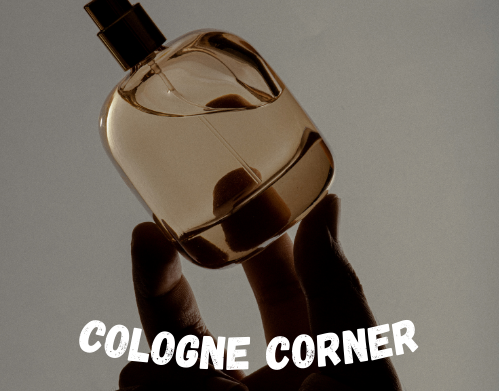This post may have affiliate links, meaning we earn a small commission on purchases through the links (at no extra cost to you). This does not change our opinion but does help support the site. Thank you!
Can your signature scent turn into a dangerous fire hazard? It’s a question that has likely crossed your mind as you spray on that alluring perfume before a night out.

We all want to smell fabulous, but safety is paramount. So, here’s the truth: Is perfume liquid flammable?
Yes, perfume can indeed be flammable, and the risks might surprise you.
But fear not, for in this article, we will unravel the mysteries surrounding the flammability of perfume and equip you with essential knowledge to ensure both your style and safety.
From understanding the ingredients to proper storage and usage, we’ll explore the precautions you need to take to enjoy your favorite fragrances without any fiery consequences.
Is Perfume Liquid Flammable?
Perfume is indeed flammable, primarily due to its alcohol content. The alcohol serves as the main ingredient in most perfumes and is highly combustible.
Even non-alcoholic perfumes can pose a flammability risk if they contain essential oils that can fuel flames when exposed to heat sources.
Ignition can occur at temperatures as low as 180°F (82°C), making perfume a volatile product.
Be cautious and avoid prolonged exposure to heat, direct flames, sparks, or hot surfaces, as these can trigger combustion.
Additionally, mixing perfume with other flammable materials increases the risk of fire. The natural oils present in perfumes can react with one another, forming unstable chemicals that release flammable gases.
Therefore, it’s crucial to handle and store perfumes with care to minimize the potential for accidents and fires.
What Makes Perfume Flammable?
Perfumes can be flammable due to their main components, alcohol, and paraffin. Alcohol fumes have a high ignition point and can cause severe burns, making them a potential fire hazard.
Spray perfumes often contain flammable solvents, such as denatured ethyl alcohol, which has a high risk of catching fire in most circumstances. Colognes and aftershaves also fall into this category.
The primary flammable liquid alcohol in perfumes is ethanol, although other forms of alcohol like denatured alcohol, SD alcohol, ethyl alcohol, and isopropyl alcohol are also commonly found in perfumes.
It’s essential to exercise caution and never expose perfume to flames, as demonstrated in the video, as it can lead to dangerous consequences. Prioritize your safety by avoiding fire exposure when it comes to perfumes.
You may want to check; Do Perfumes Expire?
What Happens If Perfume Is Heated?
When perfume is exposed to heat, it can have detrimental effects on its composition and overall quality. The direct application of heat can lead to a range of undesirable consequences.
For instance, plastic perfume bottles can warp or even melt when exposed to high temperatures.
Additionally, prolonged exposure to lower levels of heat can gradually degrade the fragrance, causing it to lose its original scent and potency over time.
To protect your perfumes, it’s essential to avoid subjecting them to excessive heat and instead store them in cool, dry environments.
By doing so, you can ensure that your fragrances maintain their integrity, allowing you to enjoy their captivating aromas for longer periods.
So, remember to keep your perfumes away from heat sources and embrace the preservation of their delicate essence.
At What Temperature Is Perfume Flammable?
When it comes to the flammability of perfume, it’s essential to understand the concept of a flash point.
The flash point refers to the temperature at which a fragrance oil can potentially ignite or combust when exposed to an open flame or spark.
In general, the majority of fragrance oils have a flash point that ranges between 141°F and 200°F or even higher.
This means that caution should be exercised when using or storing perfumes in environments where temperatures reach or exceed their specific flash points.
By being aware of these temperature thresholds, you can take the necessary precautions to ensure the safe enjoyment of your favorite fragrances without any risk of fire hazards.
Does Heat Activate Perfume?
Yes, heat can indeed activate perfume and enhance its fragrance. The volatile oils and aromatic chemicals present in perfumes are sensitive to temperature changes.
When exposed to heat, these compounds evaporate more readily, releasing their captivating scents into the surrounding air. This is why applying perfume to pulse points on your body, where the skin is warmer, can intensify its aroma.
The warmth of your skin helps to accelerate the evaporation process, allowing the fragrance to develop and mingle with your natural body chemistry.
So, when choosing where to apply perfume, opt for areas like the wrists, neck, and behind the ears to maximize its activation and longevity.
By harnessing the power of heat, you can unlock the true potential of your favorite fragrances and leave a lasting olfactory impression.
Final Thoughts
In conclusion, perfume is indeed a liquid that has the potential to be flammable. The presence of alcohol in most perfumes makes them highly flammable substances.
Alcohol, being volatile and combustible, can easily catch fire when exposed to an ignition source, such as an open flame or a spark. Ensure to handle perfumes with caution and keep them away from heat sources to minimize the risk of fire accidents.
Understanding the flammability of perfume not only ensures our safety but also allows us to make informed decisions while using and storing these fragrant products.
